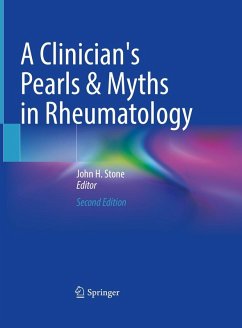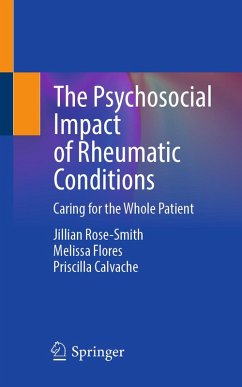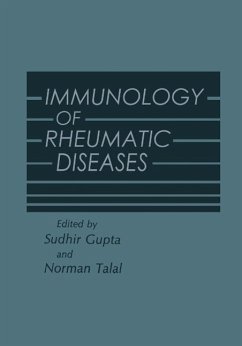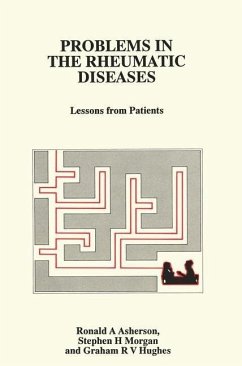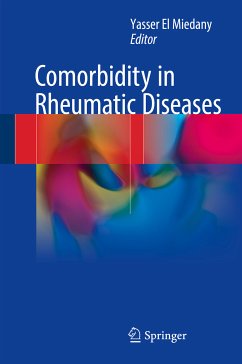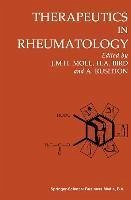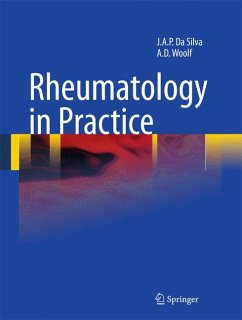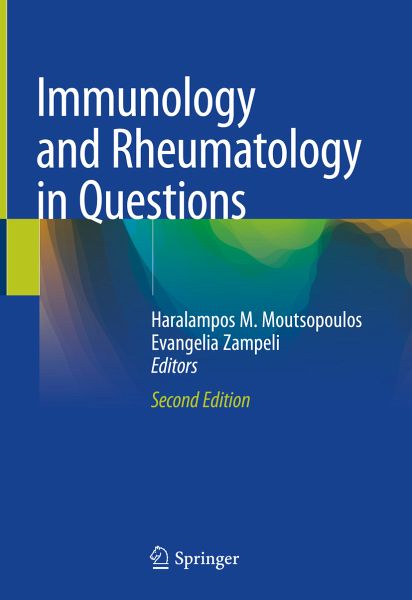
eBook, PDF
Immunology and Rheumatology in Questions (eBook, PDF)

PAYBACK Punkte
40 °P sammeln!





Immunology and Rheumatology in Questions (eBook, PDF)
Dieser Download kann aus rechtlichen Gründen nur mit Rechnungsadresse in A, B, BG, CY, CZ, D, DK, EW, E, FIN, F, GR, HR, H, IRL, I, LT, L, LR, M, NL, PL, P, R, S, SLO, SK ausgeliefert werden.
Haralampos M. Moutsopoulos, MD, FACP, FRCP is an Emeritus Professor of the Medical School, University of Athens, Greece and active Member of Athens Academy holding the chair of Medical sciences-Immunology. His research has contributed to current understanding of the clinical aspects, pathogenesis and therapy of autoimmune rheumatic disorders. He is considered a world authority on Sjögren's syndrome (autoimmune Epithelitis). His scientific work is extensively cited (>51000, h factor >110) and he has been awarded with numerous national and international awards. Evangelia Zampeli, MD, PhD is a Consultant Rheumatologist in Bioclinic General Hospital of Athens and Associate Member of the Institute for Autoimmune Systemic and Neurological Disorders, Athens, Greece. She has obtained her PhD on Immunopharmacology and continues her research which is concentrated on clinical and immunologic aspects of systemic autoimmune diseases. Panayiotis G. Vlachoyiannopoulos, MD, PhD is Professor of Medicine and Immunology at the University of Athens, School of Medicine. He has studied the clinical presentation, epidemiology and pathogenic aspects of systemic autoimmune connective tissue diseases using as a disease model of the antiphospholipid syndrome. He has written extensively on these topics and has published 126 peer reviewed articles. Jacques-Olivier Pers, DDS, PhD is Professor of Immunology and Director of the INSERM research team UMR1227 "B cells and autoimmunity" at the University of Brest, Laboratory of Immunology, France. His research focuses on immunopathology and immunotherapy dedicated to the study of normal and pathological B cells. He has studied different disease models of autoimmune diseases (Sjögren's syndrome, systemic lupus erythematosus, rheumatoid arthritis), lymphoproliferative disorders (chronic lymphocytic leukemia), and kidney graft rejection from upstream approaches (epigenetics and autoimmunity, the genetic control of BAFF, calcium signaling, regulatory B cells) to downstream approaches (multicenter clinical trials, IVIg, patents).
Produktdetails
- Verlag: Springer Nature Switzerland
- Seitenzahl: 253
- Erscheinungstermin: 14. Dezember 2020
- Englisch
- ISBN-13: 9783030566708
- Artikelnr.: 61827331
Für dieses Produkt wurde noch keine Bewertung abgegeben. Wir würden uns sehr freuen, wenn du die erste Bewertung schreibst!
Eine Bewertung schreiben
Eine Bewertung schreiben
Andere Kunden interessierten sich für


